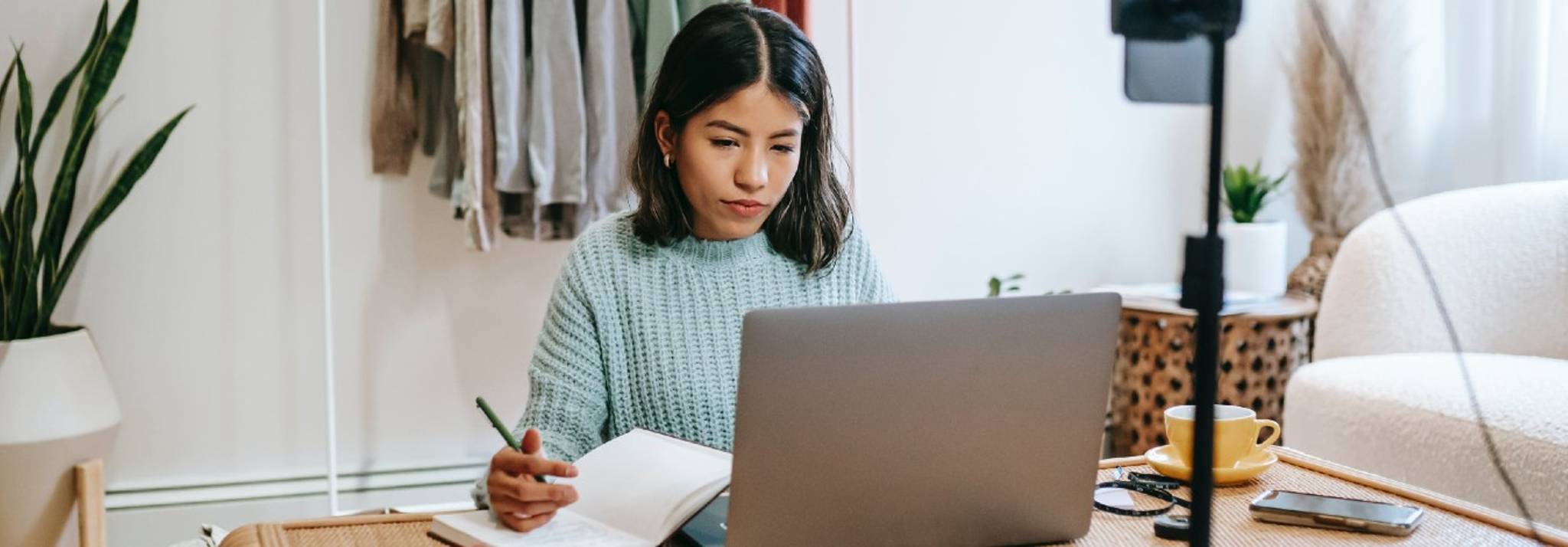
The influencer economy is being influenced… by the economy. As global uncertainty causes economic what-ifs, attitudes towards traditional influencer tactics are shifting. With consumers opting to leave overconsumption and overspending in the past, ‘de-influencing’ is helping them do so.
Tech layoffs, an ongoing energy crisis, and ‘recession core’, the bleakest of all the cores wherein the rich downplay their wealth as a means of ‘not showing off’, have people pinching their wallets and changing their spending habits. The concept was broken down on The Polyester Podcast, which noted that, in some ways, it serves as a way for the rich to “glean relatability from the masses,” while Millie Roberts wrote for Refinery29 about recession core and the noticeable lack of diamonds and glitz on the red carpets.
This shift in celebrity behaviour is leading people to look elsewhere for inspiration and influence, and people that are more relatable than brash are having their time in the spotlight. But the attitudes causing recession core are extremely real, especially for younger generations, who studies have found are less likely to buy things on credit.
Their caution could be linked to their upbringing as many of them grew up during the financial crisis of 2008, specifically Gen Yers who came of age as global markets crashed. While some of them may have been too young to remember it properly, chances are it has still shaped their general spending attitudes. And so, recession core takes centre stage, with one TikTok creator commenting "me saying recession core while holding back tears in the grocery store line.”
When we consider this in tandem with the world of influencers, where recommendations reign supreme and hyping up products on an unbelievable scale is the norm, it makes sense that more people are turning towards ‘de-influencing’.
Growing in popularity on TikTok, the trend features users telling people which products they don’t recommend purchasing, and much of the discourse is framed around saving people hard-earned money – but the narrative is also focused on reducing unnecessary consumption habits.
Young people are fed up with being told what to buy, for various reasons, whether related to financial strain or environmental concerns around rapid over-consumption. The glossy bathroom cabinets of beauty buffs filled to the brim with products feel out of touch, and the speed and scale of influencer fashion haul videos are in direct contrast to many younger consumers' current lived realities.
For people that have spent time becoming embedded into their favourite influencers' universes, chances are these fandoms have bought a couple of products that such influencers were pushing. And why were they so quick to hit that purchase button? Because they were told that they needed these products, that they couldn't live without them, and because their favourite influencers said it was a good idea.
But the relationships people have with influencers are changing. The nature of influence is shifting and people now feel more connected to relatable influencers that are transparent and more aligned with their fans and the world around them.
So with creators and influencers hopping on camera telling people not to buy overhyped products they find on social media, and with consumers increasingly following those who seem authentic, there's a move away from aspirational content and towards realistic product placement that can help people rather than draining their wallets. De-influencing isn’t the beginning of the end of the influence, rather it's a steer towards a new type of influencer future.



